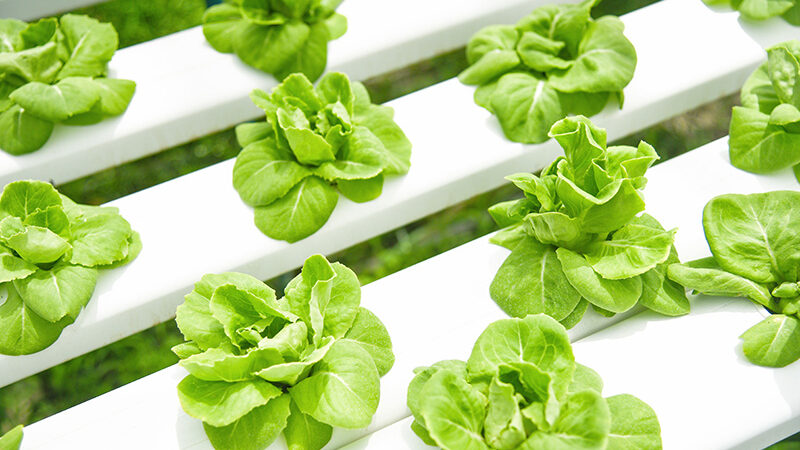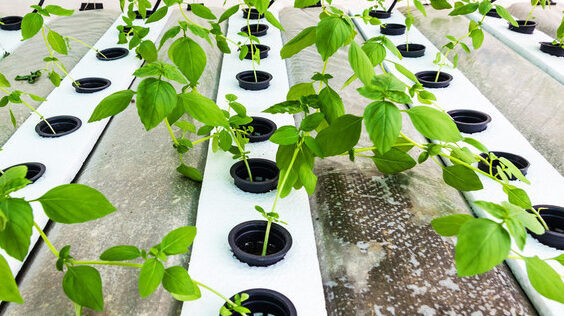What is an Indoor Hydroponic Vegetable Garden?
Indoor hydroponic vegetable gardens are growing in popularity, and for good reason. They offer a way to grow vegetables that is more sustainable and has fewer environmental impacts than traditional gardening methods.
Indoor hydroponic vegetable gardens are a great way to grow your own food without the use of pesticides, herbicides, or other chemicals. They also have the potential to reduce pollution in our air and water because they don’t require the use of fertilizers or pesticides.
Hydroponics is the process of growing plants in water instead of soil. It uses a nutrient solution that is pumped into an enclosed system where plants are grown at reduced costs compared with soil-based gardening methods.

Indoor Hydroponic Vegetable Gardens Benefits
An indoor hydroponic garden is a micro-climate where plants are grown in water and nutrients. They have many benefits, such as saving space, being energy efficient, and helping with air quality. The use cases for an indoor hydroponic garden are endless.
The Advantages of Having an Indoor Hydroponic Vegetable Garden
1) Help with air quality:
Indoor hydroponic gardens can help with the air quality in your home or office by filtering out chemicals and pollutants that contribute to poor air quality. Plus, they don’t require a lot of space to grow, which makes them perfect for small spaces like apartments or offices.
2) Save on water:
It takes a lot of water to grow plants indoors, but an indoor hydroponic garden uses less than a quarter of the amount needed for traditional gardening. The water is reused, which means you spend less money on your water bill every month.
3) Save on space:
It’s no surprise that indoor hydroponic gardens save up to 80% of the amount of space needed for a traditional garden. This could be incredibly beneficial if you are trying to create more living space in a small apartment or house.
4) Save on energy:
Indoor hydroponic gardens are very energy efficient. They use up to 90% less electricity than traditional gardens. This is great for the environment because it reduces your carbon footprint and conserves energy.
5) Grow food year-round:
If you live in a place where the growing season is too short for a traditional garden, you can still grow produce with an indoor hydroponic garden.
Tips for Indoor Hydroponic Vegetable Gardens

Hydroponics is one way to grow plants indoors. It is a method that involves the use of mineral nutrient solutions and water to grow plants without soil.
The key feature that makes hydroponics different from other methods of growing plants indoors is the ability to control the environment that the plant is in. This means that you can control how much light, water, nutrients, and oxygen are given to your plant.
- Choose vegetables that are low-maintenance and easy to grow, like spinach, basil, or lettuce.
- Make sure you have a good quality air pump and filter system in place before starting your garden. This will ensure you get good yields every time without your plants being stressed out by poor quality air or water.
- Choose a good-sized pot with good drainage and make sure it fits the space you have available.
- Make sure you plan your hydroponic system so that water is always replenished and there is no chance of over or under watering plants.
- Keep the humidity high, and this will help keep your plants healthy.
- Use good quality pots, soil, and nutrients to get the best quality results.
What are the Best Indoor Hydroponic Gardens And Websites in the Market
There are many different types of indoor hydroponic vegetable gardens that are available online. These gardens can be used to grow produce, herbs, and flowers. Some of the best websites to purchase these products include Amazon.com, Walmart.com, and eBay.
The first step in finding the best indoor hydroponic vegetable gardens is knowing what you want to grow in your garden. You should choose a type of gardening kit that fits your needs and budget so you can get the most out of your gardening experience.
There are a lot of benefits associated with indoor hydroponic gardens, including saving space and allowing you to grow produce year round without any hassle or expense on your part.
